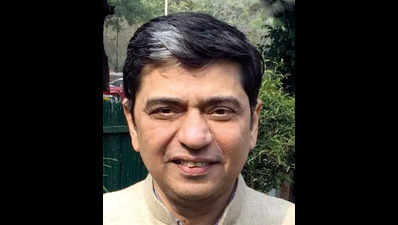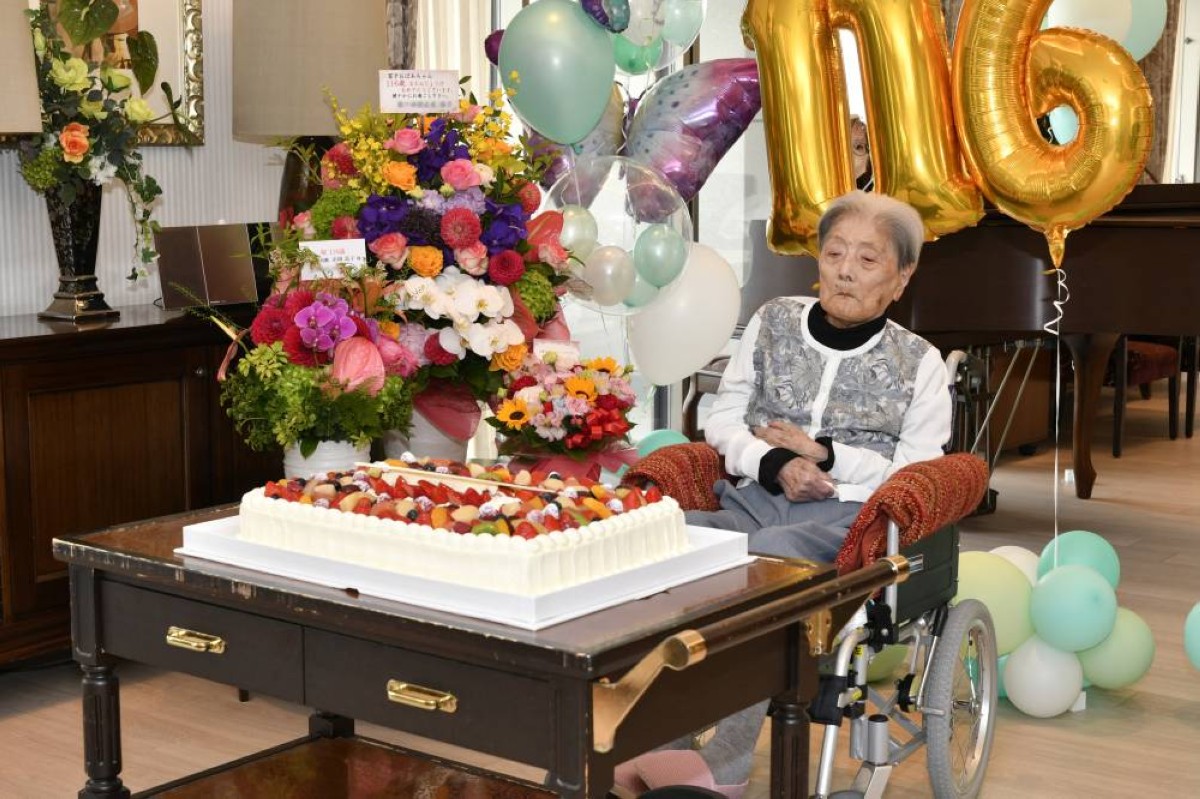poker game cards
2025-01-13
 poker game cards
"Lorem ipsum dolor sit amet, consectetur adipiscing elit, sed do eiusmod tempor incididunt ut labore et dolore magna aliqua. Ut enim ad minim veniam, quis nostrud exercitation ullamco laboris nisi ut aliquip ex ea commodo consequat. Duis aute irure dolor in reprehenderit in voluptate velit esse cillum dolore eu fugiat nulla pariatur. Excepteur sint occaecat cupidatat non proident, sunt in culpa qui officia deserunt mollit anim id est laborum." Section 1.10.32 of "de Finibus Bonorum et Malorum", written by Cicero in 45 BC "Sed ut perspiciatis unde omnis iste natus error sit voluptatem accusantium doloremque laudantium, totam rem aperiam, eaque ipsa quae ab illo inventore veritatis et quasi architecto beatae vitae dicta sunt explicabo. Nemo enim ipsam voluptatem quia voluptas sit aspernatur aut odit aut fugit, sed quia consequuntur magni dolores eos qui ratione voluptatem sequi nesciunt. Neque porro quisquam est, qui dolorem ipsum quia dolor sit amet, consectetur, adipisci velit, sed quia non numquam eius modi tempora incidunt ut labore et dolore magnam aliquam quaerat voluptatem. Ut enim ad minima veniam, quis nostrum exercitationem ullam corporis suscipit laboriosam, nisi ut aliquid ex ea commodi consequatur? Quis autem vel eum iure reprehenderit qui in ea voluptate velit esse quam nihil molestiae consequatur, vel illum qui dolorem eum fugiat quo voluptas nulla pariatur?" 1914 translation by H. Rackham "But I must explain to you how all this mistaken idea of denouncing pleasure and praising pain was born and I will give you a complete account of the system, and expound the actual teachings of the great explorer of the truth, the master-builder of human happiness. No one rejects, dislikes, or avoids pleasure itself, because it is pleasure, but because those who do not know how to pursue pleasure rationally encounter consequences that are extremely painful. Nor again is there anyone who loves or pursues or desires to obtain pain of itself, because it is pain, but because occasionally circumstances occur in which toil and pain can procure him some great pleasure. To take a trivial example, which of us ever undertakes laborious physical exercise, except to obtain some advantage from it? But who has any right to find fault with a man who chooses to enjoy a pleasure that has no annoying consequences, or one who avoids a pain that produces no resultant pleasure?" 1914 translation by H. Rackham "But I must explain to you how all this mistaken idea of denouncing pleasure and praising pain was born and I will give you a complete account of the system, and expound the actual teachings of the great explorer of the truth, the master-builder of human happiness. No one rejects, dislikes, or avoids pleasure itself, because it is pleasure, but because those who do not know how to pursue pleasure rationally encounter consequences that are extremely painful. Nor again is there anyone who loves or pursues or desires to obtain pain of itself, because it is pain, but because occasionally circumstances occur in which toil and pain can procure him some great pleasure. To take a trivial example, which of us ever undertakes laborious physical exercise, except to obtain some advantage from it? But who has any right to find fault with a man who chooses to enjoy a pleasure that has no annoying consequences, or one who avoids a pain that produces no resultant pleasure?" Thanks for your interest in Kalkine Media's content! To continue reading, please log in to your account or create your free account with us.
poker game cards
"Lorem ipsum dolor sit amet, consectetur adipiscing elit, sed do eiusmod tempor incididunt ut labore et dolore magna aliqua. Ut enim ad minim veniam, quis nostrud exercitation ullamco laboris nisi ut aliquip ex ea commodo consequat. Duis aute irure dolor in reprehenderit in voluptate velit esse cillum dolore eu fugiat nulla pariatur. Excepteur sint occaecat cupidatat non proident, sunt in culpa qui officia deserunt mollit anim id est laborum." Section 1.10.32 of "de Finibus Bonorum et Malorum", written by Cicero in 45 BC "Sed ut perspiciatis unde omnis iste natus error sit voluptatem accusantium doloremque laudantium, totam rem aperiam, eaque ipsa quae ab illo inventore veritatis et quasi architecto beatae vitae dicta sunt explicabo. Nemo enim ipsam voluptatem quia voluptas sit aspernatur aut odit aut fugit, sed quia consequuntur magni dolores eos qui ratione voluptatem sequi nesciunt. Neque porro quisquam est, qui dolorem ipsum quia dolor sit amet, consectetur, adipisci velit, sed quia non numquam eius modi tempora incidunt ut labore et dolore magnam aliquam quaerat voluptatem. Ut enim ad minima veniam, quis nostrum exercitationem ullam corporis suscipit laboriosam, nisi ut aliquid ex ea commodi consequatur? Quis autem vel eum iure reprehenderit qui in ea voluptate velit esse quam nihil molestiae consequatur, vel illum qui dolorem eum fugiat quo voluptas nulla pariatur?" 1914 translation by H. Rackham "But I must explain to you how all this mistaken idea of denouncing pleasure and praising pain was born and I will give you a complete account of the system, and expound the actual teachings of the great explorer of the truth, the master-builder of human happiness. No one rejects, dislikes, or avoids pleasure itself, because it is pleasure, but because those who do not know how to pursue pleasure rationally encounter consequences that are extremely painful. Nor again is there anyone who loves or pursues or desires to obtain pain of itself, because it is pain, but because occasionally circumstances occur in which toil and pain can procure him some great pleasure. To take a trivial example, which of us ever undertakes laborious physical exercise, except to obtain some advantage from it? But who has any right to find fault with a man who chooses to enjoy a pleasure that has no annoying consequences, or one who avoids a pain that produces no resultant pleasure?" 1914 translation by H. Rackham "But I must explain to you how all this mistaken idea of denouncing pleasure and praising pain was born and I will give you a complete account of the system, and expound the actual teachings of the great explorer of the truth, the master-builder of human happiness. No one rejects, dislikes, or avoids pleasure itself, because it is pleasure, but because those who do not know how to pursue pleasure rationally encounter consequences that are extremely painful. Nor again is there anyone who loves or pursues or desires to obtain pain of itself, because it is pain, but because occasionally circumstances occur in which toil and pain can procure him some great pleasure. To take a trivial example, which of us ever undertakes laborious physical exercise, except to obtain some advantage from it? But who has any right to find fault with a man who chooses to enjoy a pleasure that has no annoying consequences, or one who avoids a pain that produces no resultant pleasure?" Thanks for your interest in Kalkine Media's content! To continue reading, please log in to your account or create your free account with us.
Chuck Woolery, game show host of 'Love Connection' and 'Scrabble,' dies at 83I'm A Celeb's Dean McCullough 'surprises' viewers in latest Bushtucker Trial
‘Shadow swimming just beyond’: First ever live footage of roughskin dog fish shark captured | Watch
It was no different for Jimmy Carter in the early 1970s. It took meeting several presidential candidates and then encouragement from an esteemed elder statesman before the young governor, who had never met a president himself, saw himself as something bigger. He announced his White House bid on December 12 1974, amid fallout from the Vietnam War and the resignation of Richard Nixon. Then he leveraged his unknown, and politically untainted, status to become the 39th president. That whirlwind path has been a model, explicit and otherwise, for would-be contenders ever since. “Jimmy Carter’s example absolutely created a 50-year window of people saying, ‘Why not me?’” said Steve Schale, who worked on President Barack Obama’s campaigns and is a long-time supporter of President Joe Biden. Mr Carter’s journey to high office began in Plains, Georgia where he received end-of-life care decades after serving as president. David Axelrod, who helped to engineer Mr Obama’s four-year ascent from state senator to the Oval Office, said Mr Carter’s model is about more than how his grassroots strategy turned the Iowa caucuses and New Hampshire primary into his springboard. “There was a moral stain on the country, and this was a guy of deep faith,” Mr Axelrod said. “He seemed like a fresh start, and I think he understood that he could offer something different that might be able to meet the moment.” Donna Brazile, who managed Democrat Al Gore’s 2000 presidential campaign, got her start on Mr Carter’s two national campaigns. “In 1976, it was just Jimmy Carter’s time,” she said. Of course, the seeds of his presidential run sprouted even before Mr Nixon won a second term and certainly before his resignation in August 1974. In Mr Carter’s telling, he did not run for governor in 1966, he lost, or in 1970 thinking about Washington. Even when he announced his presidential bid, neither he nor those closest to him were completely confident. “President of what?” his mother, Lillian, replied when he told her his plans. But soon after he became governor in 1971, Mr Carter’s team envisioned him as a national player. They were encouraged in part by the May 31 Time magazine cover depicting Mr Carter alongside the headline “Dixie Whistles a Different Tune”. Inside, a flattering profile framed Mr Carter as a model “New South” governor. In October 1971, Carter ally Dr Peter Bourne, an Atlanta physician who would become US drug tsar, sent his politician friend an unsolicited memo outlining how he could be elected president. On October 17, a wider circle of advisers sat with Mr Carter at the Governor’s Mansion to discuss it. Mr Carter, then 47, wore blue jeans and a T-shirt, according to biographer Jonathan Alter. The team, including Mr Carter’s wife Rosalynn, who died aged 96 in November 2023, began considering the idea seriously. “We never used the word ‘president’,” Mr Carter recalled upon his 90th birthday, “but just referred to national office”. Mr Carter invited high-profile Democrats and Washington players who were running or considering running in 1972, to one-on-one meetings at the mansion. He jumped at the chance to lead the Democratic National Committee’s national campaign that year. The position allowed him to travel the country helping candidates up and down the ballot. Along the way, he was among the Southern governors who angled to be George McGovern’s running mate. Mr Alter said Mr Carter was never seriously considered. Still, Mr Carter got to know, among others, former vice president Hubert Humphrey and senators Henry Jackson of Washington, Eugene McCarthy of Maine and Mr McGovern of South Dakota, the eventual nominee who lost a landslide to Mr Nixon. Mr Carter later explained he had previously defined the nation’s highest office by its occupants immortalised by monuments. “For the first time,” Mr Carter told The New York Times, “I started comparing my own experiences and knowledge of government with the candidates, not against ‘the presidency’ and not against Thomas Jefferson and George Washington. It made it a whole lot easier”. Adviser Hamilton Jordan crafted a detailed campaign plan calling for matching Mr Carter’s outsider, good-government credentials to voters’ general disillusionment, even before Watergate. But the team still spoke and wrote in code, as if the “higher office” were not obvious. It was reported during his campaign that Mr Carter told family members around Christmas 1972 that he would run in 1976. Mr Carter later wrote in a memoir that a visit from former secretary of state Dean Rusk in early 1973 affirmed his leanings. During another private confab in Atlanta, Mr Rusk told Mr Carter plainly: “Governor, I think you should run for president in 1976.” That, Mr Carter wrote, “removed our remaining doubts.” Mr Schale said the process is not always so involved. “These are intensely competitive people already,” he said of governors, senators and others in high office. “If you’re wired in that capacity, it’s hard to step away from it.” “Jimmy Carter showed us that you can go from a no-name to president in the span of 18 or 24 months,” said Jared Leopold, a top aide in Washington governor Jay Inslee’s unsuccessful bid for Democrats’ 2020 nomination. “For people deciding whether to get in, it’s a real inspiration,” Mr Leopold continued, “and that’s a real success of American democracy”.
NEW YORK (AP) — Meta, the parent company of Facebook and Instagram, said it has donated $1 million to President-elect Donald Trump's inauguration fund. The donation comes just weeks after Meta CEO Mark Zuckerberg met with Trump privately at Mar-a-Lago. A Meta spokesperson confirmed the offering Thursday. The news was first reported by The Wall Street Journal. Stephen Miller, who has been appointed deputy chief of staff for Trump’s second term, has said that Zuckerberg, like other business leaders, wants to support Trump’s economic plans. The tech CEO has been seeking to change his company’s perception on the right following a rocky relationship with Trump. Trump was kicked off Facebook following the Jan. 6, 2021 attack on the U.S. Capitol. The company restored his account in early 2023. During the 2024 campaign, Zuckerberg did not endorse a candidate for president but has voiced a more positive stance toward Trump. Earlier this year, he praised Trump’s response to his first assassination attempt. Still, Trump had continued to attack Zuckerberg publicly during the campaign. In July, he posted a message on his own social network Truth Social threatening to send election fraudsters to prison in part by citing a nickname he used for the Meta CEO. “ZUCKERBUCKS, be careful!” Trump wrote. Corporations have traditionally made up a large share of donors to presidential inaugurals, with an exception in 2009, when then-President-elect Barack Obama refused to accept corporate donations. He reversed course for his second inaugural in 2013. Facebook did not donate to either Biden's 2021 inaugural or Trump’s 2017 inaugural. Google donated $285,000 each to Trump first inaugural and Biden’s inaugural, according to Federal Election Commission records. Inaugural committees are required to disclose the source of their fundraising, but not how they spend the money. Microsoft gave $1 million to Obama’s second inaugural, but only $500,000 to Trump in 2017 and Biden in 2021.
It was no different for Jimmy Carter in the early 1970s. It took meeting several presidential candidates and then encouragement from an esteemed elder statesman before the young governor, who had never met a president himself, saw himself as something bigger. He announced his White House bid on December 12 1974, amid fallout from the Vietnam War and the resignation of Richard Nixon. Then he leveraged his unknown, and politically untainted, status to become the 39th president. That whirlwind path has been a model, explicit and otherwise, for would-be contenders ever since. “Jimmy Carter’s example absolutely created a 50-year window of people saying, ‘Why not me?’” said Steve Schale, who worked on President Barack Obama’s campaigns and is a long-time supporter of President Joe Biden. Mr Carter’s journey to high office began in Plains, Georgia where he received end-of-life care decades after serving as president. David Axelrod, who helped to engineer Mr Obama’s four-year ascent from state senator to the Oval Office, said Mr Carter’s model is about more than how his grassroots strategy turned the Iowa caucuses and New Hampshire primary into his springboard. “There was a moral stain on the country, and this was a guy of deep faith,” Mr Axelrod said. “He seemed like a fresh start, and I think he understood that he could offer something different that might be able to meet the moment.” Donna Brazile, who managed Democrat Al Gore’s 2000 presidential campaign, got her start on Mr Carter’s two national campaigns. “In 1976, it was just Jimmy Carter’s time,” she said. Of course, the seeds of his presidential run sprouted even before Mr Nixon won a second term and certainly before his resignation in August 1974. In Mr Carter’s telling, he did not run for governor in 1966, he lost, or in 1970 thinking about Washington. Even when he announced his presidential bid, neither he nor those closest to him were completely confident. “President of what?” his mother, Lillian, replied when he told her his plans. But soon after he became governor in 1971, Mr Carter’s team envisioned him as a national player. They were encouraged in part by the May 31 Time magazine cover depicting Mr Carter alongside the headline “Dixie Whistles a Different Tune”. Inside, a flattering profile framed Mr Carter as a model “New South” governor. In October 1971, Carter ally Dr Peter Bourne, an Atlanta physician who would become US drug tsar, sent his politician friend an unsolicited memo outlining how he could be elected president. On October 17, a wider circle of advisers sat with Mr Carter at the Governor’s Mansion to discuss it. Mr Carter, then 47, wore blue jeans and a T-shirt, according to biographer Jonathan Alter. The team, including Mr Carter’s wife Rosalynn, who died aged 96 in November 2023, began considering the idea seriously. “We never used the word ‘president’,” Mr Carter recalled upon his 90th birthday, “but just referred to national office”. Mr Carter invited high-profile Democrats and Washington players who were running or considering running in 1972, to one-on-one meetings at the mansion. He jumped at the chance to lead the Democratic National Committee’s national campaign that year. The position allowed him to travel the country helping candidates up and down the ballot. Along the way, he was among the Southern governors who angled to be George McGovern’s running mate. Mr Alter said Mr Carter was never seriously considered. Still, Mr Carter got to know, among others, former vice president Hubert Humphrey and senators Henry Jackson of Washington, Eugene McCarthy of Maine and Mr McGovern of South Dakota, the eventual nominee who lost a landslide to Mr Nixon. Mr Carter later explained he had previously defined the nation’s highest office by its occupants immortalised by monuments. “For the first time,” Mr Carter told The New York Times, “I started comparing my own experiences and knowledge of government with the candidates, not against ‘the presidency’ and not against Thomas Jefferson and George Washington. It made it a whole lot easier”. Adviser Hamilton Jordan crafted a detailed campaign plan calling for matching Mr Carter’s outsider, good-government credentials to voters’ general disillusionment, even before Watergate. But the team still spoke and wrote in code, as if the “higher office” were not obvious. It was reported during his campaign that Mr Carter told family members around Christmas 1972 that he would run in 1976. Mr Carter later wrote in a memoir that a visit from former secretary of state Dean Rusk in early 1973 affirmed his leanings. During another private confab in Atlanta, Mr Rusk told Mr Carter plainly: “Governor, I think you should run for president in 1976.” That, Mr Carter wrote, “removed our remaining doubts.” Mr Schale said the process is not always so involved. “These are intensely competitive people already,” he said of governors, senators and others in high office. “If you’re wired in that capacity, it’s hard to step away from it.” “Jimmy Carter showed us that you can go from a no-name to president in the span of 18 or 24 months,” said Jared Leopold, a top aide in Washington governor Jay Inslee’s unsuccessful bid for Democrats’ 2020 nomination. “For people deciding whether to get in, it’s a real inspiration,” Mr Leopold continued, “and that’s a real success of American democracy”.
None
Apollo Commercial Real Estate Finance, Inc. (NYSE:ARI) Announces Quarterly Dividend of $0.25
None
The Nedumangad police arrested eight goons, including ‘Stumper’ Anish, on the charge of attacking a police party on Sunday. Nedumangad Circle Inspector Rajesh Kumar and sub-inspectors (SIs) Santhosh Kumar and Austin sustained injuries and needed medical attention. Mr. Santhosh Kumar was still in hospital, Mr. Rajesh Kumar said. Anish who was jailed twice after being detained under the Kerala Anti-Social Activities Prevention Act (KAAPA) had organised a birthday party for his sister’s son, and invited goondas from across the district to it. On receiving information about the party, in which presence of drugs was suspected, a team of 15 police personnel tried to thwart it. But the personnel were attacked with stones, metal wires, and so on. They, however, managed to overcome the attackers and arrested eight alleged goondas, including Anish. The police suspect the presence of arms but were not able to recover them from the accused. Published - November 25, 2024 12:21 am IST Copy link Email Facebook Twitter Telegram LinkedIn WhatsApp RedditTrump offers a public show of support for Pete Hegseth, his embattled nominee to lead the PentagonNova Scotia Progressive Conservative premier names new 21-member cabinet
Related hot word search:
Previous: poker game terms
Next: poker game near me




